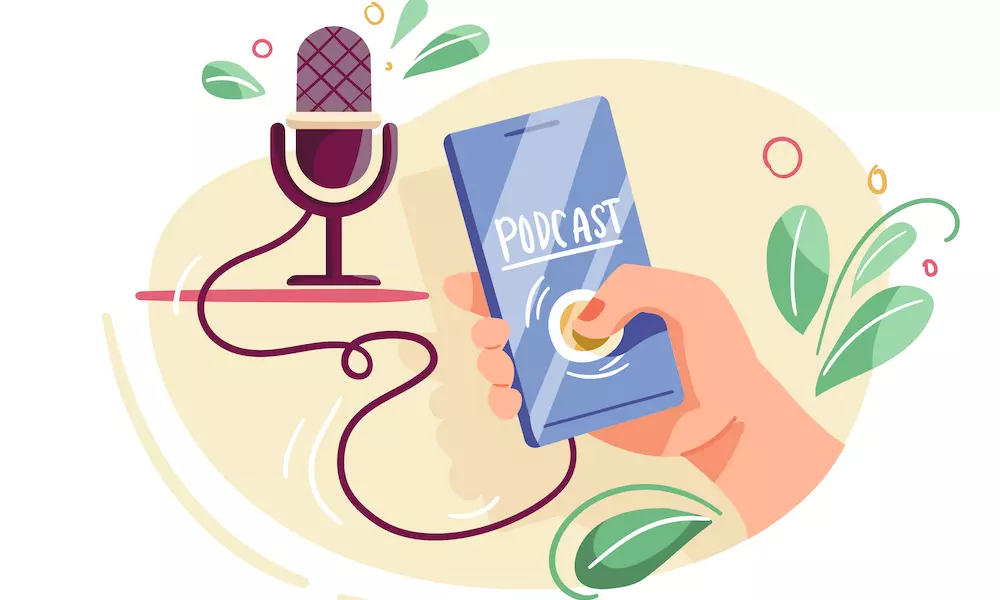Marketing
Grow Your Audience: 8 Platforms to Post Your Podcasts

Is your podcast reaching the right audiences?
That probably depends on who you consider the “right” audiences and how hard you work to reach them. Many podcasters are committed hobbyists who love the art of the podcast more than the business of podcasting. They care less about growing their audiences than cultivating and delighting a close circle of fans.
Other podcasters want to grow. And who can blame them? You have to scale to stand out in the crowded podcast marketplace.
Either way, there’s a place to post your podcasts, whether you’ve found it yet or not. These eight options are beloved by casual podcasters and future giants of the podcast scene alike.
Where To Post Your Podcasts
1. The App Store
Apple’s App Store is the first stop for most casual, iPhone-toting podcast listeners looking for new content. With millions of shows in its browseable library, it can seem daunting for novice podcasters seeking market visibility, if not name recognition. But, for better or worse, the App Store is more or less “table stakes” for aspiring podcasters.
A listing here confers a legitimacy that’s hard to come by elsewhere (with a few exceptions).
2. Medium
Medium is one such exception, one that sort of proves the rule. Medium’s built-in legitimacy — North America’s premier open-source, free-for-all blogging platform — transfers to podcasts on its historically text-heavy pages.
This Medium podcast featuring Yieldstreet’s Milind Mehere is a great example. Posted on noted technologist John Siracusa’s Medium page, it immediately stands out from countless similar fintech-focused talks.
While your podcast might not (yet) have the cachet of Siracusa’s, it’s easy to see how associating with established podcast influencers on platforms like Medium can make a difference.
3. Google Play (Google Podcasts)
Google Play is, of course, Android’s answer to the App Store. If aspiring podcasters target one Android-friendly podcast app, it should be Google Podcasts, a repository containing millions of audio shows.
4. Castos
Castos is the podcaster’s podcast platform – a must for early-stage podcasters keen to build an audience and break through the noise. Its personal podcasts product can either complement or replace the public option, allowing podcasters to offer exclusive content to members willing to pay for it or hone their craft away from the harsh light of public scrutiny. Either way, Castos is a keeper.
5. Transistor
Transistor offers multi-platform podcast distribution via the App Store, Google Podcasts, and Spotify, plus less-trafficked platforms like Overcast. Unlike some competing services, it doesn’t charge creators to launch multiple podcasts, making it easier for prolific podcasters to iterate as they please.
Transister offers analytics and multiple show support, making it suitable for beginners and professional podcasters.
6. Buzzsprout
Buzzsprout is an excellent choice for beginners eager to learn the basics of podcasting — and become familiar with the data markers of a great podcast. Known for its ease of use and beginner-friendly features, Buzzsprout’s WordPress plug-in is a must for bloggers looking to transition to podcasting (or just to complement their blogs with some high-quality, widely distributed audio content).
7. Captivate
Captivate is a sort of grown-up version of Buzzsprout. Known for its intuitive design and features like “Podcast Success Academy,” it has plenty of beginner-friendly features and easy-to-understand analytics that ease the learning curve. But it also allows unlimited podcasting, a key component of more advanced platforms like Transistor. Calling itself “the world’s only growth-oriented podcast host,”
Captivate makes no secret of its audience: podcasters are serious about scaling. (Hobbyists are welcome, too.)
8. Simplecast
Simplecast wraps an incredible podcast creation and distribution system into a best-in-class analytics and production suite that will satisfy everyone from first-time hobbyists to revenue-hungry professionals.
As the podcast distributor of record for blue-chip ‘casters like Fast Company, TechCrunch, Politico, and Harper’s Bazaar, Simplecast has the sort of track record that most podcast platforms can only envy.
And its podcasting technology is second to none, leveraging powerful audio production tools that more novice-friendly services lack.
Reach the Right Audiences Right Now
Let’s ask again. Is your podcast reaching the right audiences? There are many more platforms to consider, like Podbean, which is a podcast hosting platform and a podcast app, making it versatile. Plus, one of the oldest and most widely used podcast hosting platforms is not mentioned here – Libsyn (Liberated Syndicate).
We’ve seen how important it is to choose the right venue for your podcast with the tools and support you need to find success.
Paid or Free?
Regarding the pricing model, many podcast hosting platforms offer free and subscription-based plans. The features and limitations vary based on the type of plan.
Free Plans
Most podcast hosting platforms offer free plans with limitations on storage, bandwidth, or advanced features. These plans are often suitable for beginners.
Subscription Plans
Paid or subscription-based plans typically provide more storage, better analytics, and additional features. They are suitable for podcasters with larger audiences and more extensive content libraries.
It’s important to check each platform’s pricing and features, as the podcast hosting landscape can change, and new media may emerge with different offerings.
Your research should continue. Here’s to finding an ideal home for your podcast.






